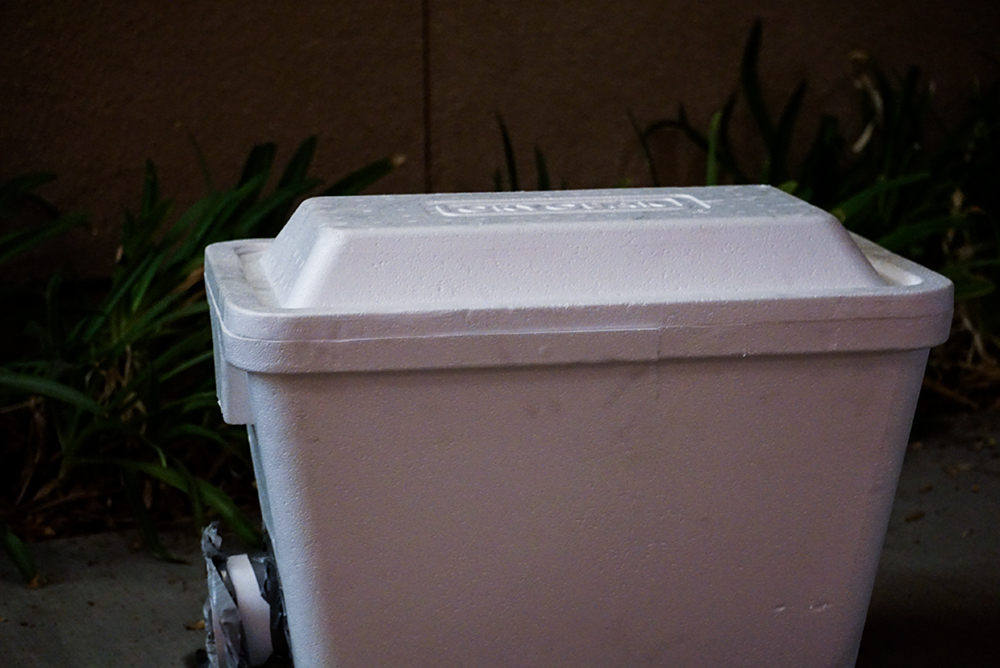When thinking of one of the most sustainable aspects of Biola, students may point to the use of motion sensor air conditioners or automatic lights in certain rooms throughout campus. However, Bon Appetit, Biola’s food service, commits to being one of the most sustainable parts of Biola’s campus. Despite the use of certain non-biodegradable products like styrofoam, Bon Appetit strives to leave the least possible carbon footprint on campus. Since they commit to leaving a small impact on the Earth in Biola’s food sector, the onus falls on students to live more sustainable lives in their food consumption.
A local commitment
Preserving the environment lies at the heart of this national food management and catering company that serves Biola. Their CEO Fedele Bauccio spearheads their commitment to locally-sourced food at corporate and student cafeterias across the nation.
The ideas and plans of Bauccio noticeably rub off on Bon Appetit’s operations at Biola. The company purchases 20 percent of produce within 150 miles of campus, according to Brian Anderson, executive chef for Bon Appetit on campus. On top of this, 100 percent of the milk products come from local dairy farms.
Along with the rest of the university, the Caf compacts all of their cardboard to ship out for recycling. Even further, they recycle all oil and scraps like coffee grounds and other leftovers for composting off site at local farms.
Beyond the Caf, eateries around campus produce little waste because of their set menu, according to Steve Rall, general manager for Bon Appetit on campus.
An environmental hazard
The use of styrofoam at retail locations, such as Eagle’s Nest and the Talon, seems counterintuitive to Bon Appetit’s sustainability initiative. The non-sustainable product does not necessarily help the environment because of its many risks. Styrofoam cannot decompose if left out in the environment. Styrofoam, or polystyrene, utilizes petroleum in its production process — heavily polluting the air. The substance also breaks down into small pieces easily. If the pieces make their way into the environment, many animals can die from choking on styrofoam, according to the Earth Resource Foundation.
In the end, though, the use of styrofoam balances out their sustainability policies.
“Styrofoam has a green footprint in being made and that’s it, but it doesn’t seep out any chemicals, it’s clean in the landfill,” Rall said. “Paper has a green footprint because the chemicals used leech out into the soil.”
Negative retaliation
Eliminating styrofoam and switching to more sustainable products would also unfortunately cause an increase in prices at eatery locations, according to Rall. This would likely upset students, considering the negative feedback to small sustainability efforts such as vegan awareness month as exhibited on sites such as the private Overheard @ Biola page on Facebook. Whether students meant protesting against national vegan month, this as a joke or seriously, it shows a certain pushback to sustainable options, considering serving plant-based proteins at the Caf would cut down on carbon emission from transportation and slaughterhouses.
Even though Bon Appetit has some small, necessary flaws in their system with the use of styrofoam, they earnestly commit to sustainability in food. Since they do their part in helping the Earth, students must commit to living greener lives in the many ways they eat on campus. Students should not fear alternate lifestyles through eating because it challenges their current lifestyles. Small ways to help the environment, like occasionally eating vegan or vegetarian options, mean something in the grand scheme of climate change. At Biola, Bon Appetit earnestly commits to being stewards of the Earth through their many initiatives. The role of helping the environment now lies in the hands of students.







